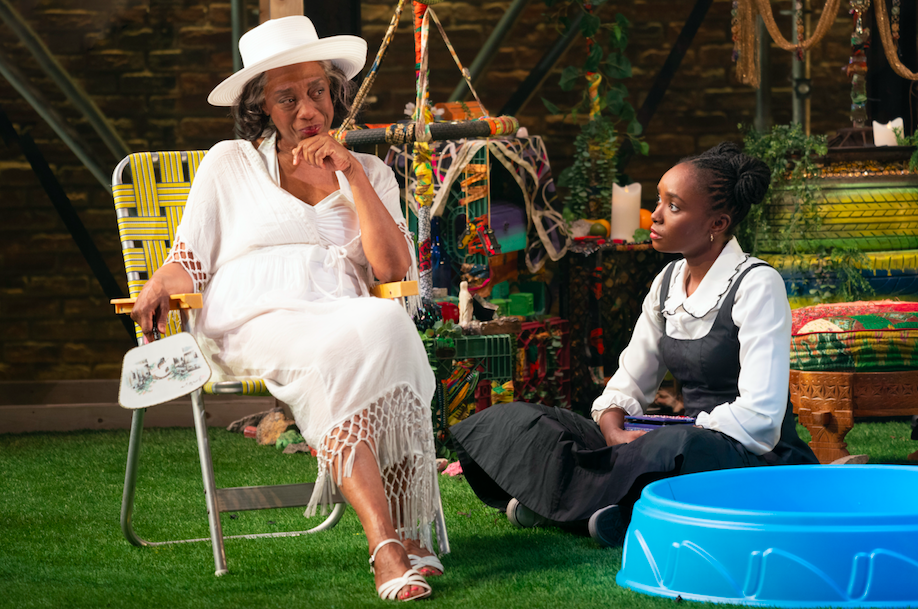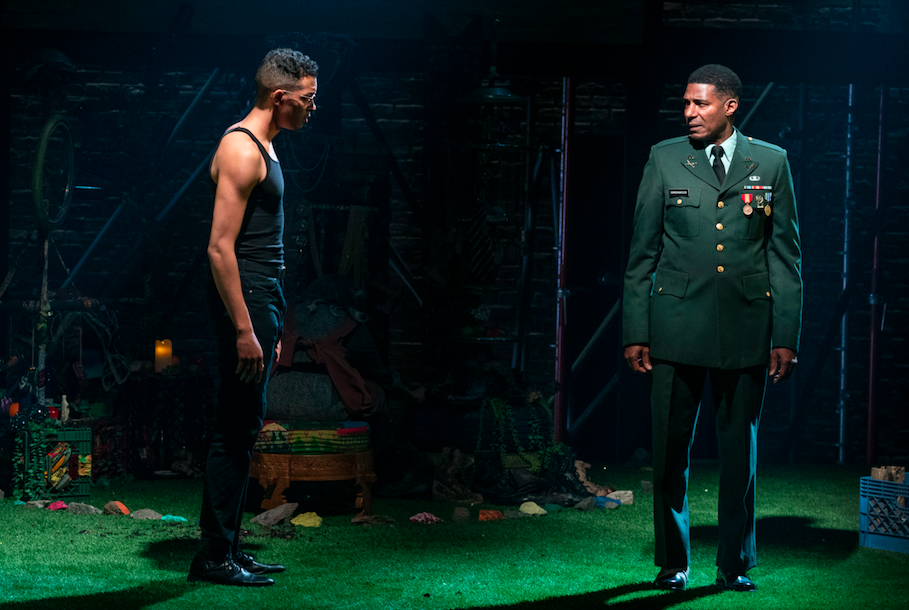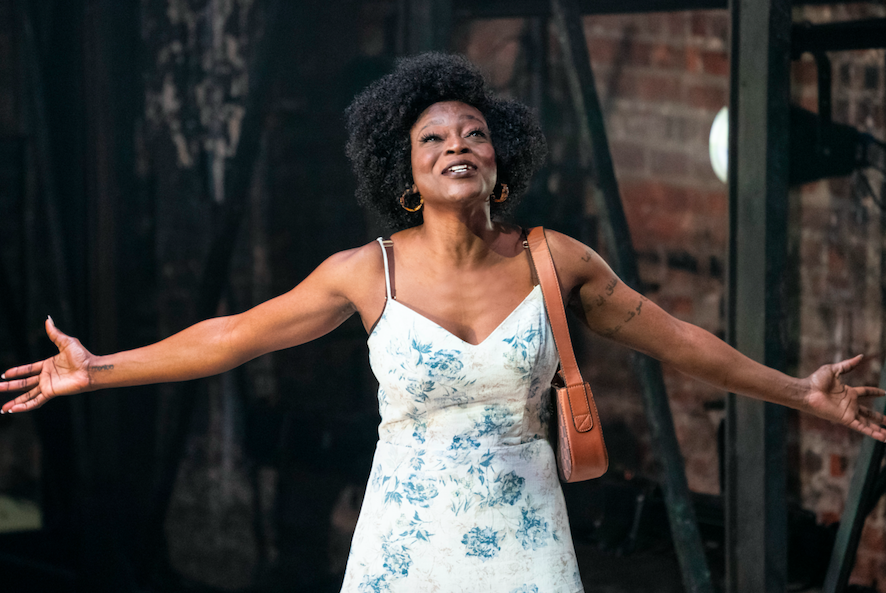The offstage war in On Sugarland, Aleshea Harris’ poetic and riveting new play at New York Theater Workshop, is unnamed. It could be the Persian Gulf War or the conflict in Afghanistan. It could even be the one in Vietnam, except apparently there is no draft to force young people into harm’s way since the characters both living and dead have been recruited rather than forced to serve. But the war is ongoing and disproportionately preys on communities of color, like the titular one. Sugarland is a cul de sac with three mobile home trailers, bordering on a railroad line (Adam Rigg created the symbolic and colorful setting). Each of the occupants has had a tragic loss and their front yard has been turned into a “carnival graveyard” with gaily decorated mementos of their beloved soldiers lovingly enshrined.

Credit: Joan Marcus
Inspired by Sophocles’ Philoctetes, Sugarland employs symbolism, myth, and storytelling to examine the military’s influence on and degradation of the community and how individuals are enmeshed in its unstoppable trajectory. In the ancient Greek tragedy, the title valiant warrior is rejected by his countrymen because of a disgusting, suppurating wound which cannot be healed. Yet they need his skill as a fighter to win their war. In Harris’ update, the veteran with the repulsive, smelly injury is Saul Greenwood (Billy Eugene Jones, moving in his depiction of desperation and confusion about his place in society). Estranged from his community, but honored for his ability to “holler” or publicly mourn for their military dead at their all-too-frequent funerals. He is tended by his psychologically-challenged son Addis (Caleb Eberhardt in a spectacularly realistic performance) who trains passionately to join the Army, but his disability prevents him from being accepted.

Credit: Joan Marcus
Saul’s tragedy is echoed by that of his neighbors. There’s mute Sadie who speaks only to the audience in compelling monologues, masterfully delivered by KiKi Layne, telling of her female ancestors and their bravery against racism and oppression. Sadie’s alcoholic aunt Odella (funny and pathetic Adeola Role), is in mourning for her dead love who deserted and therefore is not memorialized in Sugarland. Next door are the elderly sisters, practical, feisty Tisha (the magnificent Lizan Mitchell) mourning her late son and narcissistic Evelyn (delightfully vain Stephanie Berry), parading in a series of flashy gowns designed with flair by Qween Jean and taking comfort in her faded beauty.
In another bow to her source material, Harris provides a Greek chorus of young people, called The Rowdy, who supply the voices of doubt and ridicule which plague the main characters. But they also offer comfort and solace when anguish is the greatest.

Credit: Joan Marcus
Harris’ imaginative metaphor-laden script is both symbolic and naturalistic. The characters and their situations are believable, but also have a heightened reality. Director Whitney White’s production also has a dual personality, simultaneously serving as a play of ideas with larger-than-life staging (aided by Amith Chandrashker’s evocative lighting and Mikaal Sulaiman’s throbbing, intense sound design) as well as kitchen-sink drama with relatable people and plotline. White gives the play the quality of a ceremony or rite and the cast conveys both the naturalism and the presentational aspects of their roles. Kayne is particularly effective in Sadie’s silent rage and her historic depiction of her fiery forebears. Although the explosive ending (no spoilers) is a bit forced and overly melodramatic, Sugarland is a gripping portrait of three families struggling against powers beyond their control. That’s the mark of successful Greek tragedy and modern drama.
